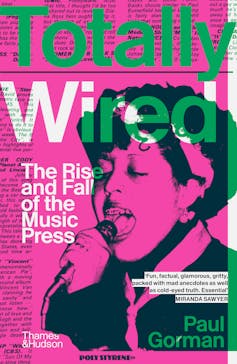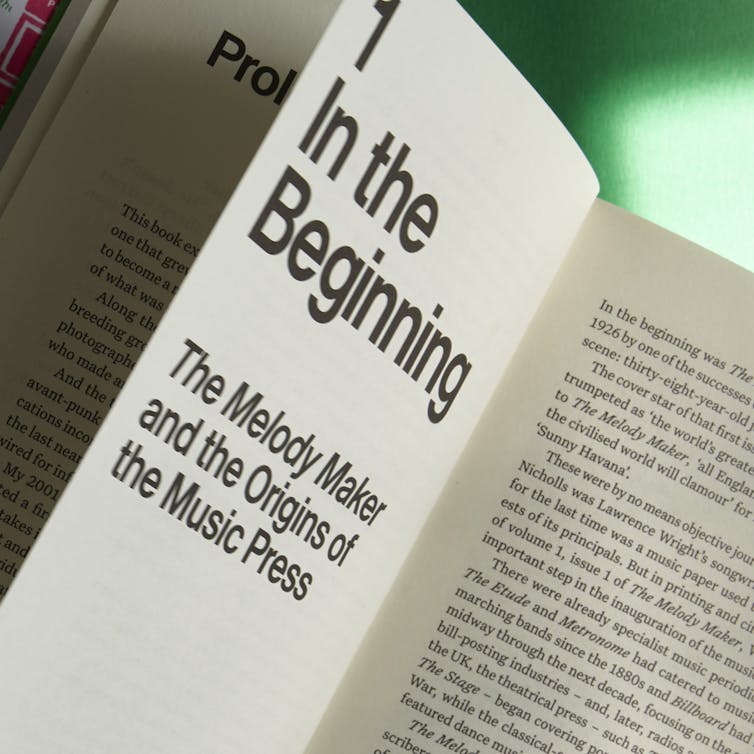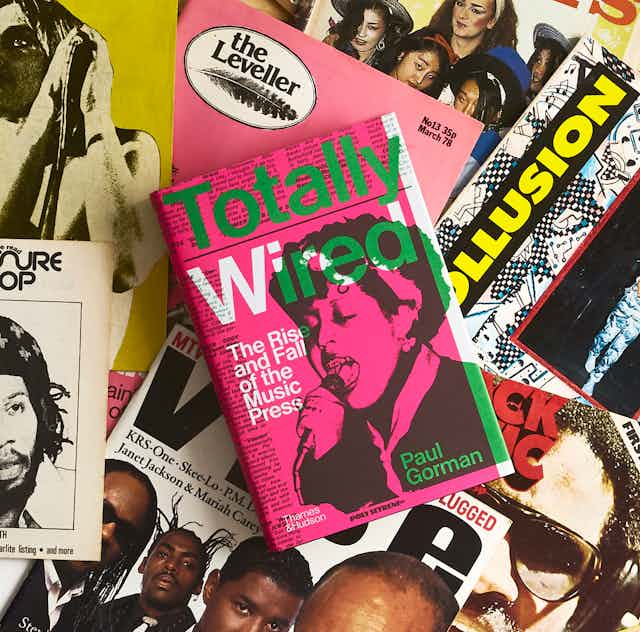Musicians have long had their careers captured for posterity by the music press. Yet, the spotlight has rarely been turned around to the journalists who write these stories. Totally Wired is a vivid oral history of music journalists in the UK and US.

Paul Gorman began collecting these interviews over 20 years ago, publishing them as In Their Own Write: Adventures in the Music Press (2001). Concentrating particularly on the period from the 1950s to the late 1990s, it was presented as a thematically arranged set of conversations between some leading journalists, discussing the so-called “golden era” of music journalism (1950 to the late 2000s).
Totally Wired is a labour of love and a rich complement to its precursor. It draws on previously published histories and biographies by music journalists, including Melody Maker: History of 20th Century Popular Music by Nick Johnstone (1999), The History of NME by Pat Long (2012) and The Rolling Stone Magazine by Robert Draper (1990).
Though it makes for dense reading in places, the attention to detail will delight those in or closely connected to music journalism – though the same readers will likely bemoan the inevitable omissions. Gorman gives a potted history, not just of the expected long-running music publications (such as Rolling Stone, NME, Melody Maker, Q) but their intersections with the style press (such as The Face, i-D), zines (Sniffin’ Glue) and several other short-lived yet influential publications (New Sounds, New Styles).
Press and prejudice
Gorman also explores misogyny within the music press, which noted jazz critic Val Wilmer called “a bastion of male chauvinism” in 1989. He also covers racism, including the overt bigotry in early issues of Melody Maker, and homophobia, in discussion with former NME editor Neil Spencer.
Engagingly, Gorman also reminds readers of forgotten trailblazing editors. There’s Gloria Stavers (editor-in-chief of 16 Magazine), whose careful attention to what her teen readers wanted resulted in an eye-wateringly enviable circulation figure. And then there’s Alan Lewis, who oversaw Kerrang!, Vox and Loaded, and who “championed black music”.
Gorman deftly captures the personalities of the scene, from those who embodied the rock’n’roll lifestyles they wrote about to those who found the environment more challenging. This includes quieter characters, such as Fred Dellar, supposedly the nicest person in music journalism, as well as those who straddled academia and journalism (including Simon Frith, Dave Laing and Paul Gilroy).

Problems
Despite what the publisher, Thames & Hudson, claim, this book can’t be “definitive”, because some of the key voices in music journalism during this period are no longer alive to share their perspectives. And any magazine or paper is always a collaboration – some of the art directors are mentioned for notable redesigns, but what of the less visible influences of photo, production and sub-editors, whose roles as gatekeepers of the music industry have never been captured?
Though the book’s blurb says it spans the same period as its predecessor, that does Gorman’s graft a disservice, as it opens in 1926 and its epilogue considers the impact of the pandemic, with a nod of acknowledgement to online successors.
If oral history is your bag then you might supplement this read with Dave Laing’s Unsung: An Oral History of the UK Music Business (2019) and the proliferation of autobiographical books from music journalists (notably Allan Jones, Mark Ellen, David Hepworth and Ted Kessler) which add a more human dimension.
Though the printed music press continues to dwindle, Totally Wired reminds us that the relationship between music and words remains as intoxicating as ever.

Looking for something good? Cut through the noise with a carefully curated selection of the latest releases, live events and exhibitions, straight to your inbox every fortnight, on Fridays. Sign up here.

